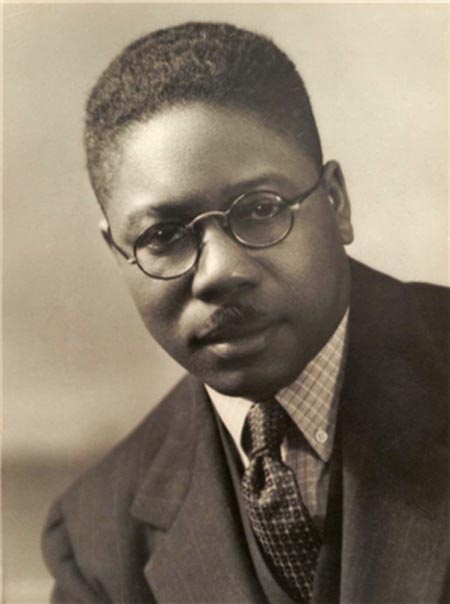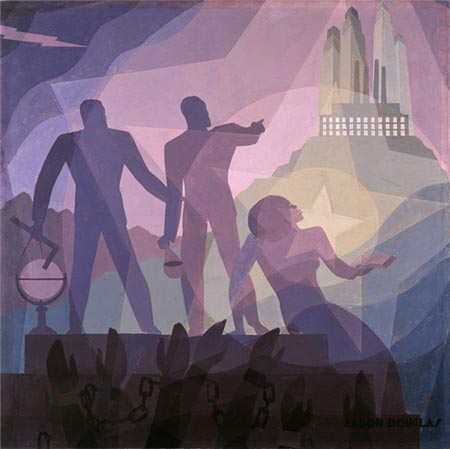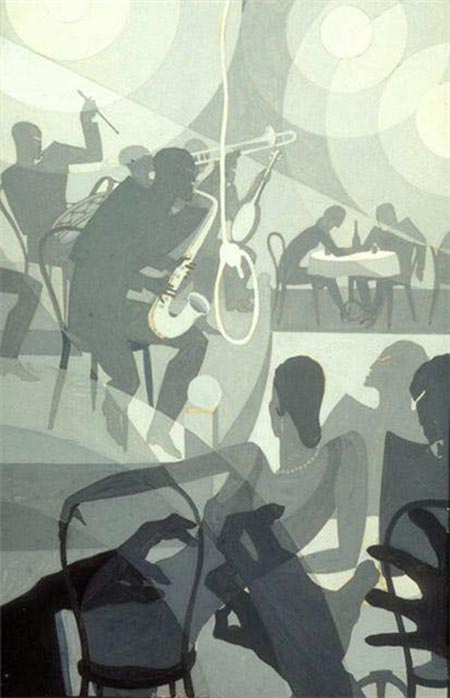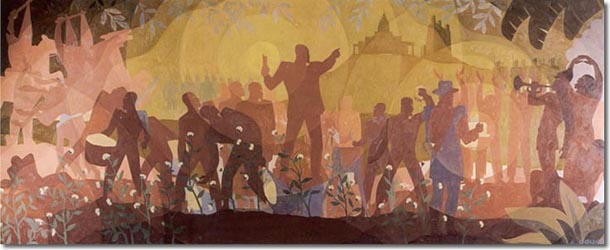
(May 26, 1899 – February 2, 1979)
Aaron Douglas was an African-American painter, illustrator, and visual arts educator.
He developed his art career painting murals and creating illustrations that addressed social issues around race and segregation in the United States by utilizing African-centric imagery. His works are characterized by elegant, rhythmic silhouettes.

oil by Aaron Douglas

oil on masonite by Aaron Douglas

gouache by Aaron Douglas

His first illustration commissions were for The Crisis, the National Urban League’s magazine, and Opportunity, the magazine of the National Association for the Advancement Colored People. In these early works, he created powerful images of the struggles of marginalized people.
In 1935, Douglas helped to form, and became the first president of, the Harlem Artists Guild. The guild supported and promoted young African American artists who created works focused on the many issues faced by the Black community, including racism, unemployment, and poverty.
From 1918-1937, Douglas became a central figure in the Harlem Renaissance. During this period national organizations were founded to promote civil rights, efforts were made to improve socioeconomic opportunities for African Americans, and artists worked to define and depict African American heritage and culture for themselves.
His series of murals entitled “Aspects of Negro Life” features four panels, each depicting a different part of the African American experience. Each mural included a captivating mix of Douglas’s influences, from jazz music to abstract and geometric art.
In 1944, he concluded his art career by founding the Art Department at Fisk University in Nashville, Tennessee. He taught visual art classes at Fisk until his retirement in 1966. In 1963, he was invited by President John F. Kennedy to attend a celebration of the centennial of the Emancipation Proclamation, held at the White House.
Douglas is known as a prominent leader in modern African-American art whose work influenced artists for years to come. His use of bold, solid fields of color can be seen in the work of another Harlem Renaissance painter, Jacob Lawrence.
Douglas died at the age of 79 on February 2, 1979, in Nashville. A special memorial service was held at Fisk University. Walter J. Leonard, the university’s president at the time, said, “Aaron Douglas was one of the most accomplished of the interpreters of our institutions and cultural values. He captured the strength and quickness of the young; he translated the memories of the old; and he projected the determination of the inspired and courageous.”